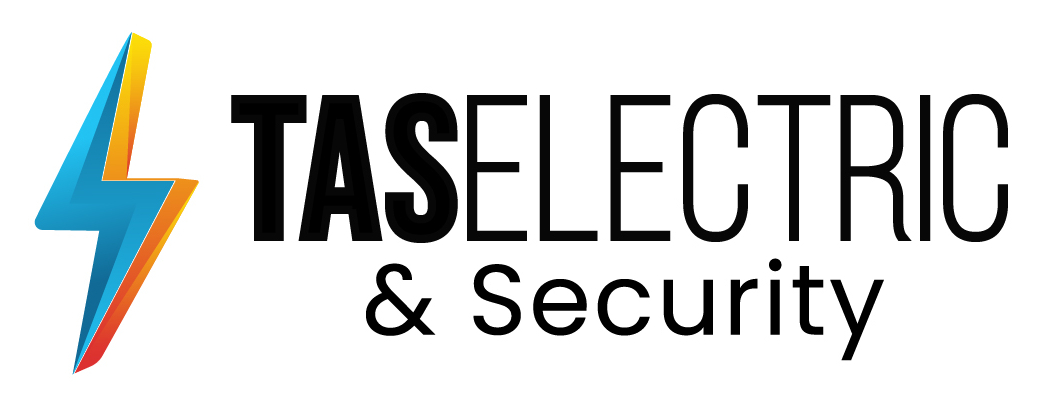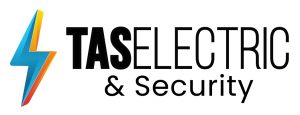Why You Need an Electrician for Commercial Lighting Installation…
In today’s competitive business landscape, ensuring a well-lit commercial space is not just a matter of aesthetics; it’s a critical component of operational efficiency and employee safety. Proper lighting can enhance productivity, reduce energy costs, and create a welcoming environment for clients and staff alike. However, achieving optimal lighting requires expert knowledge and experience, which is why hiring a qualified electrician for commercial lighting installation is essential. This article delves into the myriad reasons why professional electricians are indispensable for this task.
Understanding the Importance of Professional Lighting
Enhancing Workplace Safety
One of the primary reasons to hire an electrician for commercial lighting installation is safety. Poorly installed lighting can lead to accidents, injuries, and even legal liabilities. Electricians are trained to recognize potential hazards and ensure that all installations comply with safety regulations.
-
- Proper Placement: Electricians understand how to position lights effectively to minimize shadows and dark spots, thereby reducing the risk of accidents.
- Correct Fixtures: They know which fixtures are suitable for different environments, ensuring that the lighting is not only functional but also safe.
- Emergency Lighting: Electricians can install emergency lighting systems that activate during power outages, ensuring safety during critical moments.
Compliance with Regulations
Commercial properties must adhere to various local and national electrical codes. These regulations are put in place to protect both the occupants and the property itself.
-
- Understanding Codes: Electricians are well-versed in these codes and can ensure that your lighting installation meets all legal requirements.
- Avoiding Fines: Non-compliance can result in hefty fines or even forced shutdowns. Hiring a professional helps avoid these pitfalls.
- Regular Updates: Regulations can change, and licensed electricians stay updated on any modifications that may affect your installation.
The Planning Phase: A Critical Step
Assessing Lighting Needs
Before any installation begins, it’s essential to assess the specific lighting requirements of your commercial space.
-
- Purpose of the Area: Different areas require different lighting solutions. For instance, a warehouse might need bright, even lighting, while a conference room benefits from adjustable, softer lighting.
- Desired Ambiance: The atmosphere you want to create can significantly influence the type of lighting you choose.
- Energy Efficiency: An electrician can recommend energy-efficient solutions, such as LED fixtures, which can lead to significant savings over time.
Developing a Comprehensive Lighting Plan
Once the needs are assessed, a detailed lighting plan must be created.
-
- Layout and Design: Electricians can help design a layout that maximizes light distribution while considering architectural features.
- Fixture Selection: Choosing the right fixtures is crucial. Electricians can guide you in selecting the most suitable options based on your needs and budget.
- Integration with Existing Systems: A skilled electrician will consider how new lighting can work with existing electrical systems to avoid overloading circuits.
The Installation Process: Expertise Matters
Electrical Wiring and Components
The installation of commercial lighting involves intricate electrical work that requires expertise.
-
- Wiring Safety: Electricians are trained to handle wiring safely, ensuring that all connections are secure and up to code.
- Load Balancing: They understand how to balance electrical loads to prevent circuit overloads, which can lead to outages or fire hazards.
- Grounding and Protection: Proper grounding and protection mechanisms are essential to avoid electrical shocks and fires.
Mounting and Securing Fixtures
Mounting lighting fixtures is more than just attaching them to the ceiling or walls.
-
- Stability: Electricians ensure that fixtures are securely mounted to prevent accidents.
- Adjustments: They can make necessary adjustments to improve light distribution and overall functionality.
- Specialized Equipment: Some fixtures may require specialized hardware for installation, which electricians have access to.
Post-Installation: Ensuring Functionality
Testing and Verification
After installation, thorough testing is crucial to ensure that everything functions as intended.
-
- Connection Checks: Electricians verify that all electrical connections are secure and functioning properly.
- Functionality Testing: They check switches, dimmers, and any automated systems to ensure they operate correctly.
- Troubleshooting: If any issues arise, electricians can quickly diagnose and resolve them.
User Training
Once the installation is complete, it’s important to train staff on how to use the new lighting systems effectively.
-
- Understanding Controls: Electricians can provide guidance on how to operate dimmers, motion sensors, and other controls.
- Maintenance Tips: They can offer advice on maintaining the lighting system to prolong its lifespan and efficiency.
- Emergency Procedures: Training staff on emergency lighting and procedures is crucial for workplace safety.
Protecting Your Investment
Warranty Considerations
When lighting fixtures are installed by licensed electricians, the warranties often remain intact.
-
- Valid Warranties: Many manufacturers require professional installation to validate warranties, particularly for expensive fixtures like chandeliers.
- Future Repairs: Should any issues arise, having a professional installation can simplify the repair process, as electricians will be familiar with the system.
Long-term Cost Savings
Investing in professional lighting installation can lead to significant long-term savings.
-
- Energy Efficiency: Properly installed and energy-efficient fixtures can reduce electricity bills.
- Reduced Maintenance Costs: Quality installations require less frequent repairs and maintenance.
- Increased Property Value: Well-lit commercial spaces can increase overall property value, making them more attractive to potential buyers or renters.
Choosing the Right Electrician
Qualifications and Experience
Selecting the right electrician for your commercial lighting installation is crucial for success.
-
- Licensing and Certification: Ensure that the electrician holds the necessary licenses and certifications to perform commercial work.
- Experience with Commercial Projects: Look for electricians who have a proven track record in commercial installations, as they are familiar with the unique challenges that arise.
- Client Reviews and References: Checking reviews or asking for references can provide insight into the electrician’s reliability and quality of work.
Cost Considerations
While it may be tempting to choose the cheapest option, it’s essential to consider the overall value.
-
- Transparent Pricing: A good electrician will provide a detailed estimate, breaking down costs for labor, materials, and any additional services.
- Quality vs. Cost: Consider the quality of work and materials over the initial cost. Investing in a skilled electrician can save money in the long run.
- Warranty and Guarantees: Ensure that the electrician offers warranties or guarantees on their work, providing peace of mind.
The Impact of Lighting on Business Operations
Enhancing Employee Productivity
Proper lighting can significantly impact employee productivity and morale.
-
- Reduced Eye Strain: Adequate lighting minimizes eye strain, allowing employees to work more comfortably.
- Improved Focus: The right lighting can enhance focus and concentration, leading to better performance.
- Positive Atmosphere: A well-lit workspace creates a more inviting atmosphere, which can improve employee satisfaction.
Attracting Customers
For businesses that rely on foot traffic, effective lighting can attract customers.
-
- Highlighting Products: Proper lighting can showcase products effectively, drawing customers’ attention.
- Creating Ambiance: The right lighting can create a welcoming ambiance that encourages customers to enter and explore.
- Brand Image: Well-designed lighting reflects positively on your brand, enhancing your image in the eyes of potential clients.
Future-Proofing Your Lighting System
Adapting to Technological Advances
As technology continues to evolve, so do lighting solutions.
-
- Smart Lighting Systems: Electricians can install smart lighting systems that allow for remote control and automation, enhancing convenience and efficiency.
- Energy Management: Advanced systems can help monitor energy usage, providing insights that can lead to further savings.
- Scalability: A professional electrician can design a system that can be easily scaled or modified as your business grows.
Sustainability Considerations
Sustainability is becoming increasingly important for businesses.
-
- Energy-Efficient Solutions: Electricians can recommend and install energy-efficient lighting options that reduce your carbon footprint.
- Recycling and Disposal: They can guide you on proper disposal methods for old fixtures and bulbs, ensuring compliance with environmental regulations.
- Long-Lasting Fixtures: Investing in durable, high-quality fixtures can reduce waste and contribute to a more sustainable operation.
We Provide Electrical and Lighting Installation Services
TASElectric & Security offers comprehensive lighting installation and repairs services to clients with residential, commercial, industrial, or high-rise properties. Our team of highly skilled professionals have years of experience installing, maintaining, and inspecting electric and security systems and equipment.
> Learn More
Hiring a qualified electrician for commercial lighting installation is not just a wise decision; it’s a necessity for ensuring safety, compliance, and optimal functionality. From the initial planning phase to post-installation support, electricians play a crucial role in creating a well-lit, efficient, and inviting commercial space. By investing in professional services, businesses can enhance productivity, attract customers, and ultimately drive success.
Contact Us (905-870-7779) for a Free Consultation!
—
About TASElectric & Security
TASElectric & Security offers comprehensive and cutting-edge electric and security services to clients with residential, commercial, industrial, or high-rise properties. Our team of highly skilled professionals have years of experience installing, maintaining, and inspecting electric and security systems and equipment.
> Learn More



